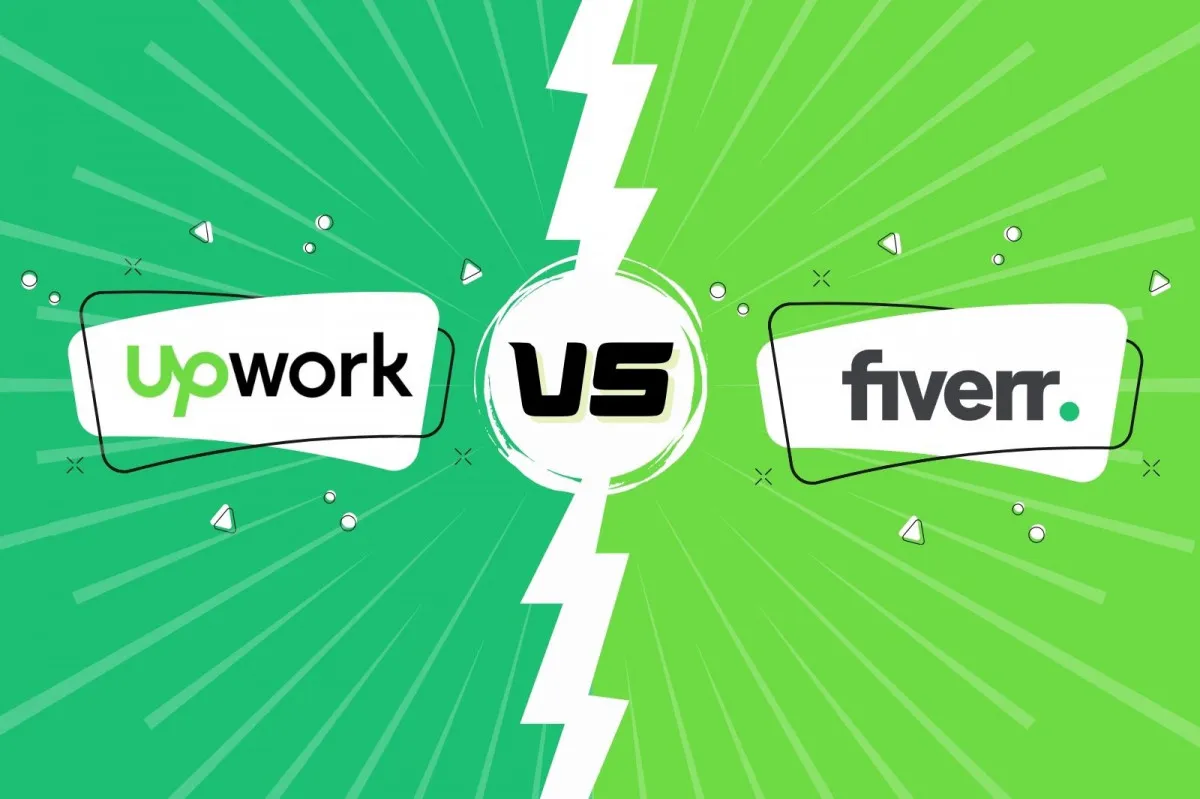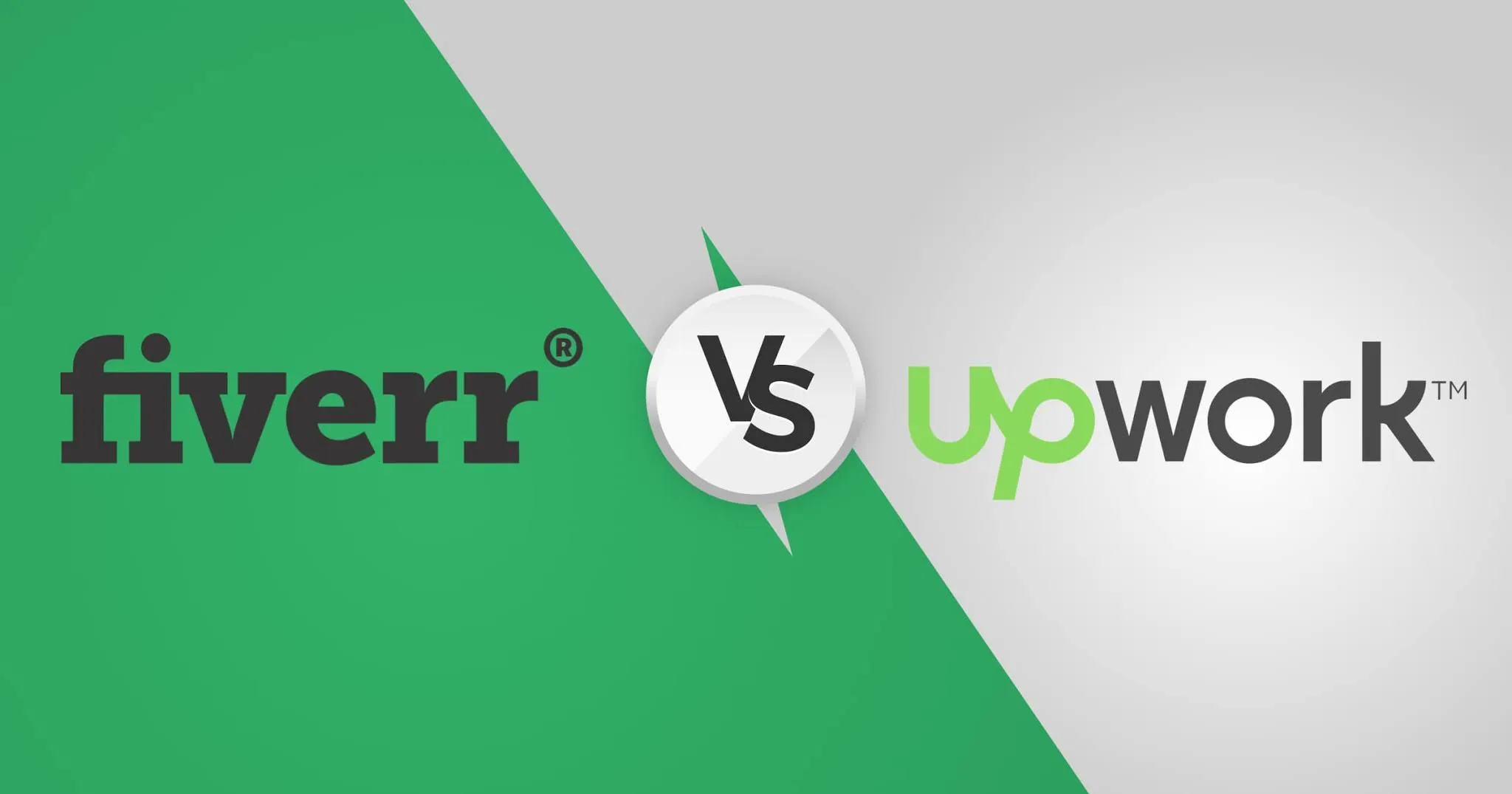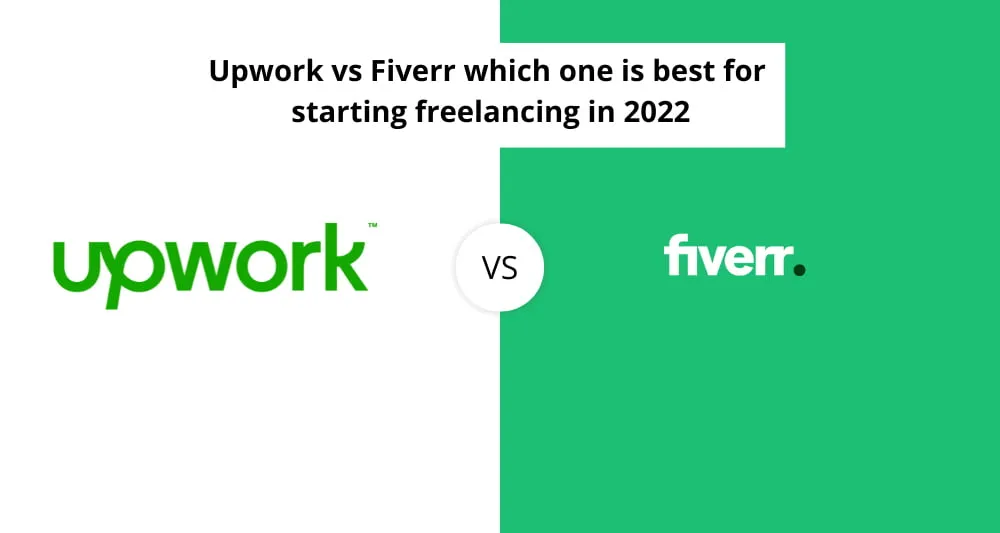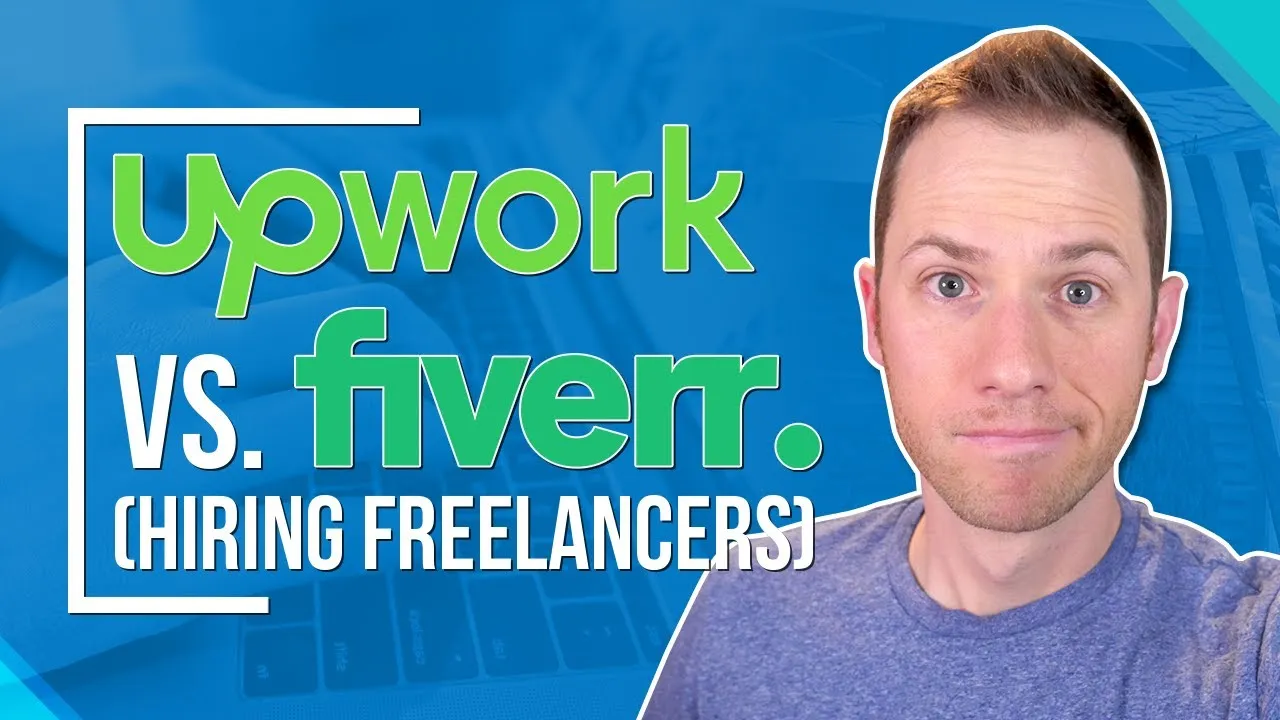Finding the right platform for freelance work can be a challenge, especially when two giants like Upwork and Fiverr dominate the landscape. Each platform has its own unique features, advantages, and user experiences, making it essential to understand which might be the best fit for your skills and goals. In this post, we’ll break down the ins and outs of both platforms to help you decide: Is Upwork or Fiverr better for you?
Overview of Upwork

Upwork has established itself as one of the leading platforms for freelancers and clients seeking skilled professionals. Launched in 2015, it emerged from the merger of two platforms, oDesk and Elance. This evolution aimed to create a more robust marketplace for both freelancers and businesses. Here’s what you need to know about Upwork:
- Wide Range of Services: Upwork caters to various fields, including writing, design, programming, marketing, and customer service. Whether you’re a graphic designer or a software developer, Upwork connects you with clients who need your expertise.
- Different Types of Jobs: On Upwork, you’ll find both long-term projects and short-term gigs. This flexibility allows freelancers to choose how they want to work and ensures they can find opportunities that fit their schedules.
- Hourly and Fixed-Price Contracts: With Upwork, you have the option to charge clients by the hour or per project. This dual pricing structure lets you tailor your services to what suits both your workflow and client preferences.
- Robust Search and Filtering: Upwork's platform includes detailed filters, allowing clients to easily find freelancers based on skills, experience level, and budget. This can increase your chances of landing a job that aligns with your expertise.
- Payment Protection Plans: Upwork offers payment protection, ensuring that freelancers get paid for their work. With options like "Hourly Protection" and "Fixed-Price Protection," you can work with peace of mind.
Overall, Upwork provides a comprehensive environment for freelancers looking to build a career, but it comes with its own set of challenges, such as service fees and competition among freelancers. Understanding these aspects will help you make an informed decision as we further explore the comparison with Fiverr.
Also Read This: How to Repeat a Custom Order on Fiverr
Overview of Fiverr

Fiverr, launched in 2010, is a popular online marketplace that focuses primarily on freelance services. Its unique approach allows freelancers, known as "sellers," to offer their services starting at just $5, hence the name "Fiverr." Over the years, it has grown into a platform where you can find a wide range of services from graphic design, writing, and programming to digital marketing and video editing.
What sets Fiverr apart from other freelance platforms is its gig-based system. Sellers list specific services (or "gigs") along with pricing tiers, which often include additional perks at higher price points. This model allows buyers to easily browse listings and select the service that best fits their needs. Here are some key points about Fiverr:
- Simple Structure: Users can quickly find services by searching keywords or browsing categories, making navigation straightforward.
- Diverse Offerings: From logo design to voiceovers, Fiverr hosts a plethora of gigs, catering to a wide array of business needs.
- Pricing Tiers: Sellers can offer multiple pricing packages for a single gig, allowing for customization based on the buyers' requirements.
- Global Talent Pool: Fiverr attracts freelancers from around the world, which not only diversifies the services available but also provides options at various price points.
Overall, Fiverr is an excellent choice for those looking for quick, specific services at competitive prices, making it a favorite among small businesses and individuals alike.
Also Read This: How to Pick a Fiverr Seller
Key Differences Between Upwork and Fiverr

When it comes to hiring freelancers online, both Upwork and Fiverr are robust platforms, but they cater to different needs and business models. Understanding the key differences between the two can help you decide which platform may be better suited to your requirements. Here’s a breakdown of the main distinctions:
| Feature | Upwork | Fiverr |
|---|---|---|
| Business Model | Hourly or project-based contracts | Gig-based marketplace with fixed pricing |
| Types of Services | Wide range, including complex projects | Focus on specific tasks or services |
| Hiring Process | Involves proposals and interviews | Simple click-to-purchase model |
| Freelancer Selection | More in-depth vetting with feedback mechanisms | User ratings and reviews for gig evaluation |
| Payment Structure | Fees based on payment amount and service type | Set fees for gigs, typically starting at $5 |
In summary, Upwork is ideal for larger, ongoing projects that require in-depth collaboration and hourly work, whereas Fiverr excels at delivering quick, one-off tasks with clear pricing. Whether you choose Upwork or Fiverr will depend on your project scope, budget, and preferred working style!
Also Read This: How to Change Your Description on Fiverr
5. Pros and Cons of Upwork

When it comes to choosing between Upwork and Fiverr, it's essential to weigh the pros and cons of each platform. Let’s dive into Upwork to see what you can expect!
Pros of Upwork:
- Diverse Talent Pool: Upwork has a vast range of freelancers with various skills, from graphic designers to software developers. This diversity allows clients to find talent that fits their specific needs.
- Customizable Projects: You can post jobs with detailed requirements, allowing freelancers to tailor their proposals specifically to your project.
- Robust Communication Tools: The platform provides tools for messaging, file sharing, and even video calls, making project management smooth and efficient.
- Flexible Pricing Options: Upwork allows for hourly, milestone-based, or fixed-price contracts, giving you flexibility in how you choose to pay freelancers.
Cons of Upwork:
- Higher Fees: Upwork has a tiered fee structure that can lead to higher costs for clients, especially for larger projects.
- Lengthy Hiring Process: With a more extensive vetting process, it may take longer to find and hire the right freelancer compared to Fiverr.
- Mixed Quality of Work: While there are many talented freelancers, the quality can vary, making it crucial to thoroughly vet candidates.
Also Read This: How to Earn from Fiverr in India
6. Pros and Cons of Fiverr
Turning our focus to Fiverr, this platform has captured the attention of clients seeking quick solutions. Let’s break down what makes Fiverr stand out—and where it may fall short.
Pros of Fiverr:
- Affordability: Fiverr is known for budget-friendly services, with gigs starting as low as $5. This makes it accessible for startups and smaller businesses.
- Simplicity: The platform's straightforward structure allows clients to browse and purchase services quickly, without lengthy negotiations.
- Service Variety: From graphic design to digital marketing, Fiverr offers a wide range of services, making it a one-stop-shop for many business needs.
- Quick Turnaround: Many freelancers offer rapid delivery options, allowing you to get your projects completed in a short time frame.
Cons of Fiverr:
- Quality Inconsistency: While there are undoubtedly skilled freelancers, the entry barrier is low, which means you might encounter less experienced individuals as well.
- Limited Customization: Services on Fiverr are often packaged into predefined gigs, which may not meet your specific needs directly.
- Additional Costs: Although gigs appear affordable, upsells for extras can quickly increase your total cost.
Also Read This: How to Design a Website Like Fiverr
7. Which Platform is Better for Freelancers?
When it comes to choosing between Upwork and Fiverr, freelancers often find themselves at a crossroads. Both platforms have unique features that cater to different types of freelancers, but what truly makes one better than the other? Let’s dive into the specifics.
Flexibility and Opportunities: Upwork generally offers a wider range of job opportunities. With various project types, from short-term gigs to long-term contracts, freelancers can find jobs that suit their skill set and schedule. Fiverr, on the other hand, allows freelancers to create "gigs," which are fixed offerings. This can be great for those who have specific services to sell but might limit opportunities compared to the vastness of Upwork’s job listings.
Pricing Structure: On Fiverr, you set your prices, which can be beneficial if you’re confident in your skills and want to dictate your worth. However, this can be a double-edged sword; saturated niches may lead to price competition. Upwork operates on a bidding system, allowing freelancers to set their rates but often pushing them to compete for clients by offering lower prices initially.
Community and Support: Both platforms have communities; however, Upwork’s client pool tends to be more diverse, which can result in higher-paying jobs. Upwork also provides freelancers with support in terms of payment protection and dispute resolution, which can be crucial for maintaining positive client relationships.
In summary, if you're a freelancer looking for flexibility, a wide range of project options, and robust support, Upwork may be your best bet. However, if you prefer to market specific services and have control over your pricing, Fiverr is worth considering.
Also Read This: Can I Trust Fiverr? A Comprehensive Guide to Freelancing Safety
8. Which Platform is Better for Clients?
When evaluating Upwork and Fiverr to determine which platform better serves clients, it’s crucial to consider various factors such as the quality of work, ease of use, and pricing options. Let’s break this down.
Quality of Work: Upwork tends to attract seasoned professionals who often have much more experience and a diverse skill set. Clients seeking high-quality, specialized services may find Upwork to be a better fit. Fiverr, while it does offer a range of talent, often sees less experienced freelancers, which can result in inconsistent quality.
Ease of Use: Fiverr is quite user-friendly for clients who want to quickly browse through services and find what they need. The fixed pricing and clearly defined gig offerings provide clarity and minimal back-and-forth. Upwork requires clients to post jobs and sift through proposals, which can be a more time-consuming process. However, this means clients can select freelancers based on specific criteria and portfolios rather than just browsing gigs.
Pricing Flexibility: Fiverr allows clients to choose from pre-set packages, making it easier to stick to a budget. On Upwork, clients can negotiate and often end up paying a premium for higher-quality work, which can be both a pro and a con, depending on their needs.
To sum it up, if you’re looking for top-tier talent and don’t mind a more involved hiring process, Upwork is likely the better choice. Conversely, if you’re after quick, budget-friendly options with clear pricing, Fiverr fits the bill nicely.
Is Upwork vs Fiverr Better? A Comprehensive Comparison
When it comes to freelancing platforms, Upwork and Fiverr are two of the most popular options available. Each platform offers unique features, benefits, and challenges, making the choice between them dependent on your specific needs as a freelancer or employer.
Overview of Upwork and Fiverr
- Upwork: A freelance marketplace that allows clients to post jobs and freelancers to bid on them. It supports a range of job categories, from writing and design to programming and marketing.
- Fiverr: A platform where freelancers list their services, known as "gigs," starting at $5. It's more transactional and tends to cater to specific service offerings.
Key Comparisons
| Feature | Upwork | Fiverr |
|---|---|---|
| Pricing Structure | Hourly or project-based pricing, with freelancers bidding for jobs. | Fixed-price gigs starting at $5. |
| Flexibility | Offers greater flexibility in job types and payment terms. | Less flexible due to gig-based offerings. |
| Target Audience | Businesses looking for experienced freelancers. | Buyers seeking quick tasks at lower prices. |
| Quality Control | Vetting process for freelancers, ensuring quality. | Quality varies as it primarily depends on individual gig descriptions. |
Conclusion: Ultimately, choosing between Upwork and Fiverr will depend on your specific needs—be it in terms of project complexity, budget constraints, or desired freelancer engagement level. For comprehensive projects, Upwork may be the superior choice, while Fiverr could be better suited for quick, budget-friendly tasks.



